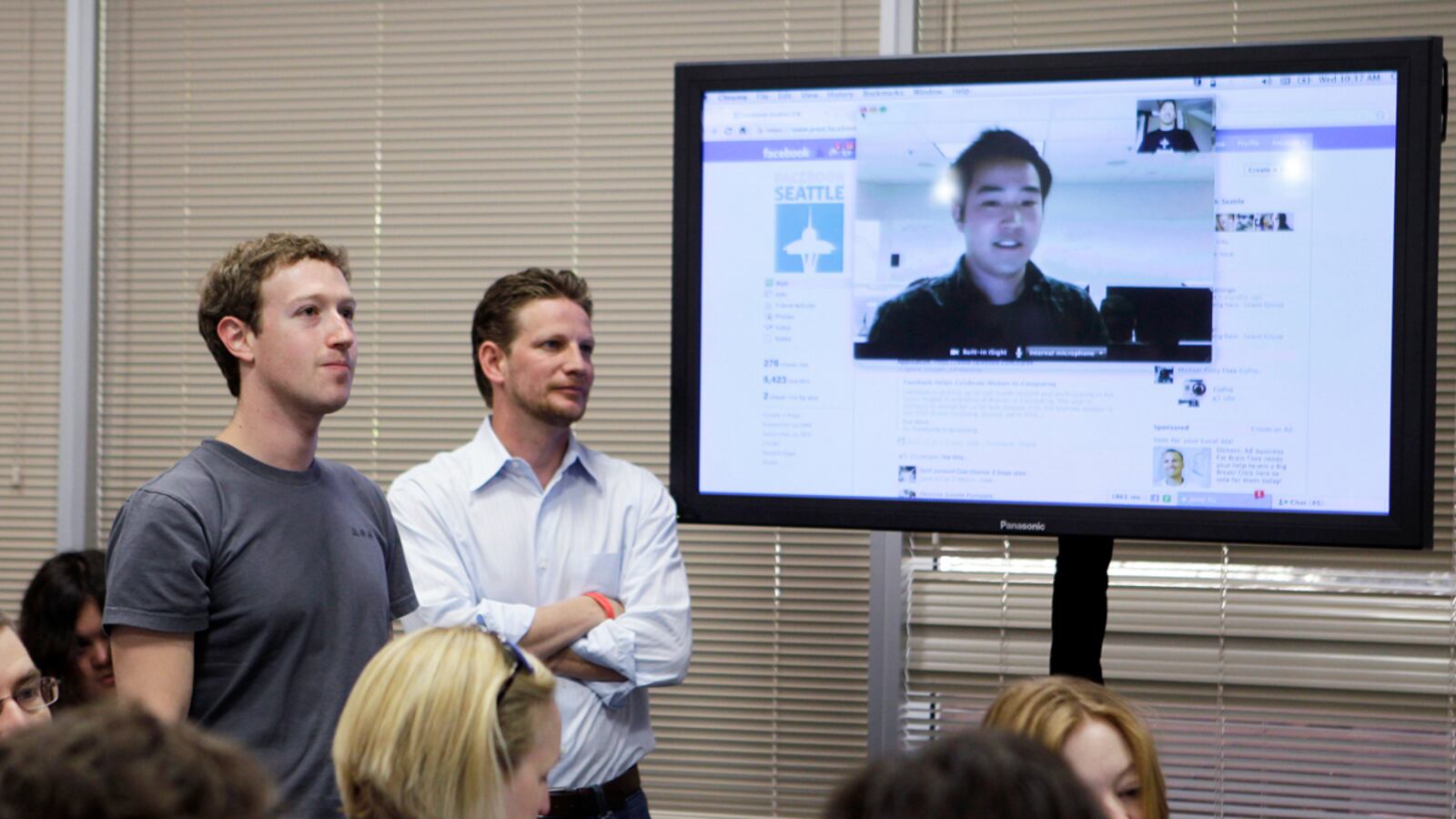On Wednesday Facebook and Skype announced that you can now make free video calls to friends in Facebook. It radically simplifies the process of conducting video conversations and will enable even the most gadget-challenged to use this sophisticated modern technology. And it points toward a near future when Facebook becomes even more embedded into the fabric of modern life.
Facebook and Skype are natural partners. Facebook operates what is essentially a directory of humanity—an index of 750 million people identified by their real names and photos. (CEO Mark Zuckerberg today confirmed that figure for the first time.) Skype, for its part, operates the largest network for online voice and video calling. Doesn’t it make sense to combine them to create a better way to find the people we want to talk to?
Facebook co-founder Dustin Moskovitz used to rant against something he calls “representational identity”—associating people with numbers, for example, instead of their names. Why should I have to keep track of someone’s home number, cell number, work number, Skype address, email address, IM account, Twitter name, and all the other ways they have to label themselves? Why shouldn’t we instead be able to simply click on our friend’s name and connect to them? That is the breakthrough today’s Facebook-Skype announcement points toward, though it by no means gets us all the way there.
After today’s announcement, representatives of Skype gave Business Insider the news that the next move for the Skype-Facebook partnership will be to enable you to dial any offline phone number from inside Facebook. This again will make unnecessary the downloads of Skype software and setting up of accounts, which has been required up to now and which surely deterred many millions from trying this useful service. And here Skype will begin to see a financial benefit from its partnership with Facebook. While the new video chat feature is free and is not even branded “Skype,” it will cost money to dial a regular phone from inside Facebook, just as Skype today charges a few pennies a minute for dialing outside numbers using its regular service. Facebook will likely require users to pay with the internal Facebook currency it calls Credits, bolstering that product’s usefulness.

Another inevitable development in the near-term will be enabling us to make voice or video calls to anyone on our Facebook friend list—or potentially anyone at all inside Facebook—merely by clicking on their name. This will strike another major blow against “representational identity” and when it happens will almost certainly be wildly popular. Such a move would effectively convert Facebook into a better interface for Skype, but make unnecessary those Skype addresses and the hassles of setting up an account. And of course this will be most useful when it is possible not just on our PCs but on our mobile phones, where we are all increasingly doing all our calling. And that, too, is just a matter of time.
It’s a clubby deal. Skype is about to be acquired by Microsoft. Microsoft and Facebook are longtime partners. Both Microsoft and Facebook fear and increasingly loathe Google. The Facebook-Skype nexus makes possible features and functions for communication that Google can only dream of. Thus there is great incentive for Skype’s new owner to encourage an ever-tighter connection between Facebook and its division.
How all this will eventually dovetail with Microsoft’s new partnership with mobile phone maker Nokia and Microsoft’s evolution of its own Windows 7 Mobile phone software is anybody’s guess, but mark my words—it will somehow dovetail. Perhaps someday soon we will have a Facebook phone manufactured by Nokia powered by Windows that is especially tuned for Skype.
Facebook is becoming a central facility for communications of many sorts—a new kind of telco, you might say. It is a far cry from being merely the Website your kids use to arrange to meet at the mall.
But today it remains trendy for supposedly sophisticated adults still to pooh-pooh Facebook, especially in developed countries like the U.S. and in Western Europe. “It’s just a plaything for kids,” they say. Or “I don’t have time for another form of communication. Why do I need Facebook?” Once Facebook and Skype broaden and deepen their partnership and Facebook becomes the easiest and cheapest place to make any kind of call, that kind of talk is likely to just slowly die away.





